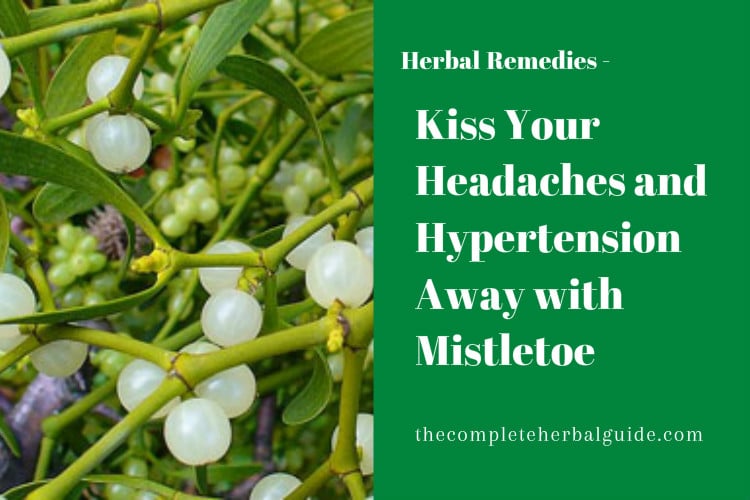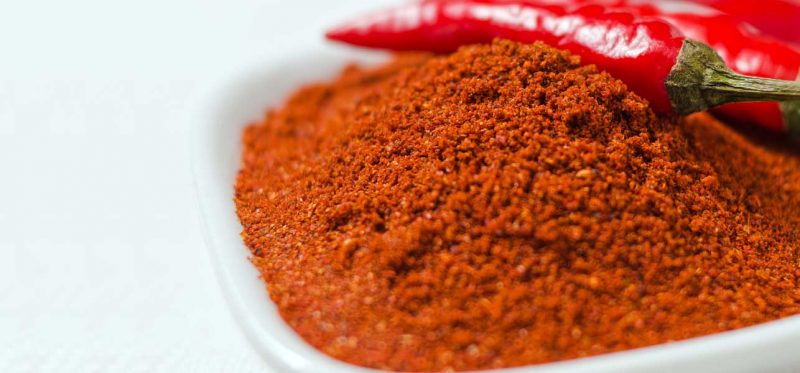
Top Tips to Eliminate and Prevent Migraines
Migraines affect up to 18 percent of women and 6 percent of men in the United States. Today, migraines affect as many as four out of every five people in America. Doctors are still unscrambling the mysteries of migraines. Many things can trigger migraines. The causes of migraines range from genetics to neurovascular imbalances in the brain.
Table of Contents
- Reasons for Weather Related Migraines
- 6 Tips to Reduce & Prevent Migraines
- Tip # 1 – Keep a Diary
- In your diary, you should include:
- Tip # 2 – Daily Regimen
- Sleep
- Exercise regularly
- Eat regular meals
- Drink plenty of water
- Limit stress
- Try complementary therapies
- Tip # 3 – Incorporate Certain Foods into Your Diet
- These foods include:
- Cayenne
- Coffee
- Flaxseed and Fish
- Riboflavin-rich Foods
- Magnesium-rich Foods
- Tip # 4 – Dietary Supplements
- Magnesium
- Vitamin B2 (riboflavin)
- Vitamin B6
- Vitamin B12 and Folic acid
- Tip # 5 – Consider the Possibilities of Herbal Supplements
- Herbal Supplements Used to Reduce and Prevent Migraines
- Tip # 6 – Prescription Medications
- Below are some prescription medications for patients suffering from migraines.
- Byline by Dr. Orrin Devinsky, M.D.
Reasons for Weather Related Migraines
It is not entirely clear why some people experience more migraines around the change of weather. Even though the cause of weather related migraines has not been identified, there are ways to reduce and prevent migraines from occurring. In a recent survey by the National Headache Foundation, headache sufferers were given a list of possible causes. They were asked to rank them in terms of what commonly brought on their migraines. Three out of every four respondents said that weather triggered their headache pain.
Specific weather triggers include:
- Changes in humidity
- Changes in temperature
- Storms
- Extremely dry conditions
- Bright lights – which can provoke migraines for some and are more problematic at some times of the year
Most people have an idea of what causes their migraines, but the real question is what can you do to help reduce migraines, decrease the severity or prevent the migraines from occurring? Below are six tips to help you cope and find a solution to preventing your migraines.
6 Tips to Reduce & Prevent Migraines
Tip # 1 – Keep a Diary
Keeping a diary is the first step toward finding a solution, so your migraines do not disrupt you and stop you from having a healthy, happy and productive life. The first step is to try to figure out what triggers your migraines. One way to do that is to keep a diary of all your migraines. If you think weather is a reason for your migraines then record any of the common weather and environmental factors that may have initiated your migraines. Keep a detailed diary and bring this diary to your doctor, so your doctor can figure what the best treatment is for you.
In your diary, you should include:
- What part of the brain do you feel the pain?
- What does the pain feel like?
- The time your headache began and when it ended
- Any changes in the weather, such as storms, high winds, or high humidity
- Any warning signs – symptoms before the migraine occurred
- Any treatment you tried, and whether it helped or made the migraine worse
Tip # 2 – Daily Regimen
Making changes in your everyday life can help reduce the number and severity of migraines you are experiencing. Here are some changes you can incorporate into your life that can help improve the number of migraines you are experiencing.
Sleep
Make sure you get enough of sleep and try going to sleep around the same time each night. Interruptions in your sleep schedule, getting too much or too little sleep, can trigger a migraine.
Exercise regularly
Research has shown that regular, moderate aerobic exercise may reduce the severity, length of time, and number of migraines in many people. Regular exercise also helps control stress, another migraine trigger.
Eat regular meals
Eating healthy meals regularly is important to maintain level blood sugar. A drop in blood sugar can trigger a migraine.
Drink plenty of water
Make sure you drink plenty of water to avoid dehydration, which can trigger migraine.
Limit stress
For many migraine sufferers, stress plays a big factor. Take time each day to relax. Find something that helps you relax like listening to soothing music, taking short walks, meditating or doing yoga.
Try complementary therapies
Try using complementary therapy to help prevent migraines. For example, you may be able to manage stress and prevent migraines through acupuncture, massages, and cognitive behavioral therapy.
Tip # 3 – Incorporate Certain Foods into Your Diet
If you are a migraine sufferer like me, you are constantly looking for prevention ideas. Certain foods can help fight off and prevent migraines.
These foods include:
Cayenne
Cayenne peppers are widely recognized as culinary ingredients that add intense heat and flavor to southwest American, Caribbean, Indian and Asian meals. However, this pepper may also offer healing benefits. Capsaicin, the chemical that gives cayenne peppers their heat, may help reduce blood vessel constriction. This may help prevent rapid blood pressure fluctuations that can trigger migraine headaches.
Coffee
When it comes to coffee, caffeine can give you migraine relief. It is a major ingredient in many headache medications. However, if you consume too much, it can actually cause migraines. Moderation is key!
Flaxseed and Fish
An anti-inflammatory diet is beneficial to preventing migraines. Flaxseeds and fish are packed with omega-3s and fiber can actually help prevent migraines.
Riboflavin-rich Foods
Riboflavin, also known as vitamin B-2, is one of eight B vitamins necessary for the metabolism of nutrients and protection of your central nervous system. A deficiency of this vitamin may also contribute to headaches, particularly migraines. Adding foods high in riboflavin may help stop recurring migraines by correcting deficiencies. Eggs, avocados, broccoli, romaine lettuce, alfalfa, asparagus, walnuts and mushrooms are abundant sources of riboflavin.
Magnesium-rich Foods
About 60 percent of migraine sufferers may have magnesium deficiencies. Magnesium is a trace mineral that may help normalize nerve impulses in your brain that transmit pain signals. This may help stop intense pain associated with migraine headaches. It may also help regulate the production of serotonin, a neurotransmitter chemical that may contribute to sudden changes in blood pressure – a contributing factor of migraines. Increase your magnesium intake by consuming foods such as kale, tofu, lima beans, kelp, garlic, apples, bananas, and apricots.
Tip # 4 – Dietary Supplements
Magnesium
This is probably the most important one as it contributes to relaxing the brain blood vessels that cause the pain. Magnesium penetrates cell membranes, including the mitochondria. Some of the best drugs used to treat migraines are calcium channel blockers.
Vitamin B2 (riboflavin)
Riboflavin, which is vitamin B2, converts energy from carbohydrates. The riboflavin gives your brain more energy, which makes it less likely to be bothered by migraine triggers.
Vitamin B6
Vitamin B6 is needed so the body can properly use serotonin and dopamine. These neurotransmitters are necessary for normal nerve cell communication. Researchers have found lower levels of serotonin in people with migraine headaches. Therefore taking Vitamin B6 may help the body better use these crucial chemicals and it is thought be a key vitamin for migraine aura and a natural remedy for migraines.
Vitamin B12 and Folic acid
Vitamin B-12 supplements may also be effective for migraine relief if taken along with vitamin B6 and folic acid. A study published in “Pharmacogenetics and Genomics” in June 2009 showed that participants who took all three supplements together saw a reduction in migraine headache frequency and the severity of their pain.
Tip # 5 – Consider the Possibilities of Herbal Supplements
For centuries, many people have used alternative therapies to help or cure common conditions. Certain herbs have been used to help reduce or prevent migraines. Some can be just as strong or effective as prescription drugs. Therefore, it is important to remember, if you consider using any type of herbal supplements, consult your doctor first. Make sure it does not conflict with any medications you are currently taking. You shouldn’t take any herbal supplements unless your doctor says it is OK and if you are pregnant, you shouldn’t take any herbal supplements because it may harm the baby.
Herbal Supplements Used to Reduce and Prevent Migraines
- Alfalfa Leaf
- Barberry Root
- Bay Leaf
- Brazilian Guarana
- Butterbur
- Catnip
- Cayenne
- Chamomile
- Dong Quai
- Evening Primrose
- Feverfew
- Ginger Root
- Green Tea
- Griffonia Seed
- Hawthorne Leaf
- Honeysuckle
- Kola Nut
- Lemon Balm
- Passion Flower
- Peppermint Leaf
- Valerian Root
- White Willow Bark
- Wintergreen
- Wood Betony
Tip # 6 – Prescription Medications
Not all experts would recommend using medication to prevent temperature-change-related migraines. However, if you have tried natural, holistic and alternative therapies to try to eliminate your migraines and nothing seems to be effective then you should consult your doctor and focus on other alternatives such as prescription medications specifically made to help people suffering from migraines.
Below are some prescription medications for patients suffering from migraines.
Antiepileptic drugs: Certain medications used to control seizures are also effective for preventing migraines as well. These drugs may work by calming the neurons in the brain. Neuron “hyperexcitability” plays a role in migraine and epilepsy. Up to 20% of people with epilepsy also suffer from migraines including myself. Anti – seizure medications that help migraines include:
Depakene (valproate)Depakote
(divalproex)Topiragen,
Topamax (topiramate)
Beta-blockers: These medications are frequently used to treat high blood pressure and heart disease. It is not clear how they help prevent migraines. Nevertheless, beta-blockers improve the blood flow and this may be significant reason why beta-blockers help prevent migraines. Beta-blockers that have been proven effective for the prevention of migraines include:
Blocadren (timolol)Inderal, Innopran XL (propranolol)Lopressor, Toprol XL (metoprolol)
Antidepressants: These medications affect the level of the brain chemicals serotonin and norepinephrine. Research has shown that Elavil (amitriptyline) and Effexor (venlafaxine) work well for preventing migraines.
When using medication to prevent migraines, keep in mind:Your doctor will likely start you on a low dose and gradually increase it over time. It may take several months to find the best dose with the fewest side effects. Never stop taking preventive medications – especially suddenly and without talking to your doctor – because it could trigger a severe migraine. Preventive medications need to be reduced slowly under your doctor’s supervision.
Preventive migraine medications may not get rid of your migraines completely. If the preventive medication cannot fully control your migraines, you may still need to take acute medications when you have a migraine.Overuse of acute migraine medications are common and can lead to a terrible cycle where reduction in the medications triggers a rebound headache and more medication is needed. If acute medications are used frequently, consider consulting a migraine expert to help break the cycle of medication overuse.
Byline by Dr. Orrin Devinsky, M.D.
Migraine is the paradigm of a neurological disorder with environmental triggers. Foods are often considered the main trigger. In this article, Ms Chillemi reviews the relationship of season and weather to migraine. This is often an underappreciated factor. For many migraineurs, recognizing their own triggers – be they food, weather, flashing lights, sleep deprivation, or others – can be one of the most techniques to prevent migraines.






